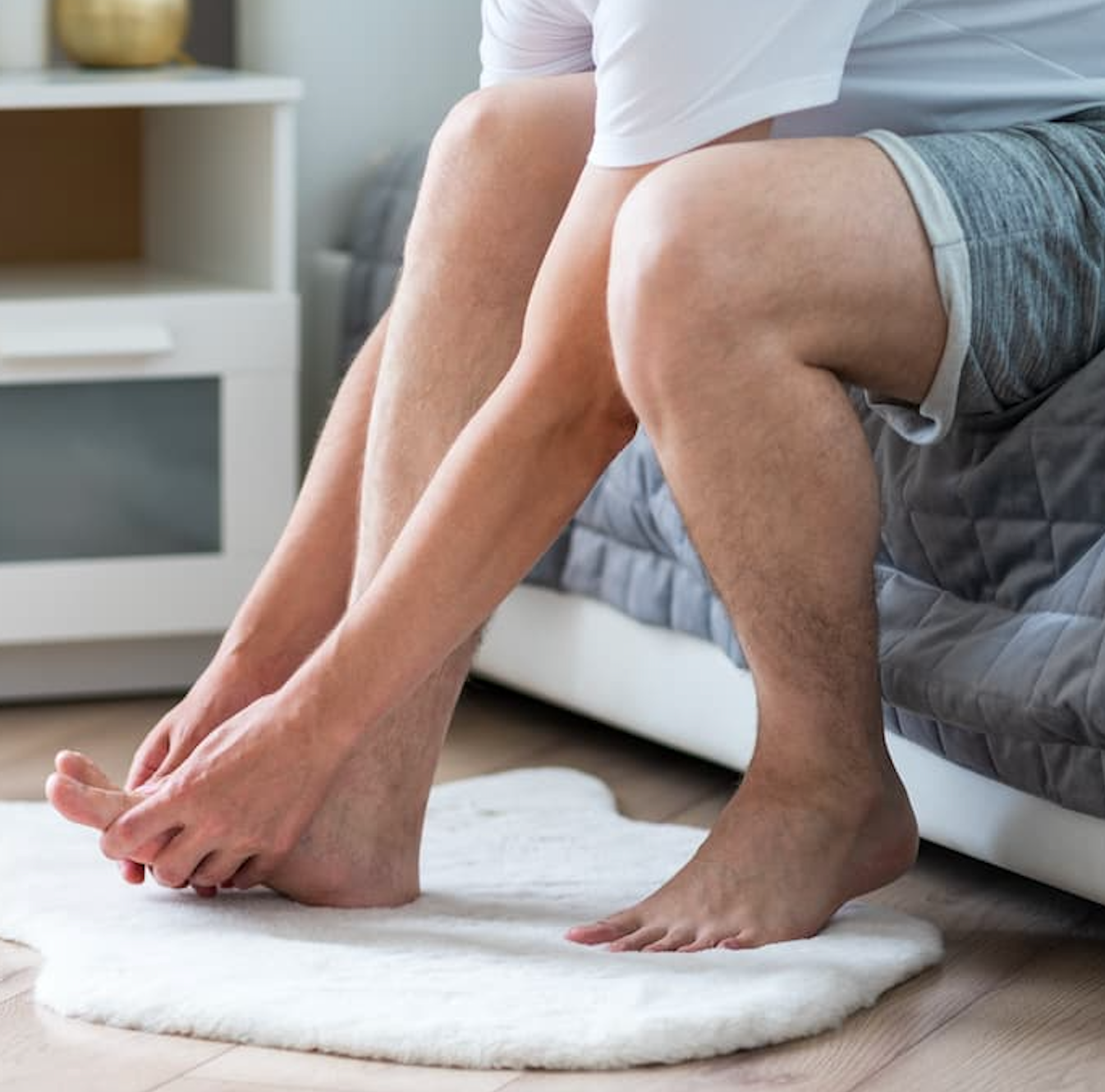Alkaline Water Reduced Pain, Joint Swelling in Patients with Gout
Alkaline water significantly reduced VAS pain scores among patients with gout.
Credit: Adobe Stock/staras

Patients with gout receiving alkaline water, particularly at high concentrations, experienced reduced joint swelling, alleviated pain, improved joint motion, and enhanced daily life, according to a study published in Medicine.1 Alkaline water also significantly reduced key inflammatory markers, including C-reactive protein, and interleukin-1β, tumor necrosis factor-α, as well as serum uric acid levels.
The role of diet and lifestyle regarding the management of chronic gouty arthritis has prompted interest in recent years. Alkaline water is a non-pharmacological supplementary treatment and has the potential to regulate body fluid pH, possibly aiding in improving uric acid solubility and excretion. This in turn can lower blood uric acid levels.2
“Current clinical evidence on the role and safety of alkaline water in treating chronic gouty arthritis remains limited,” wrote a group of investigators led by Yong Wu, BM, from the Guangdong Provincial Hydroelectric Hospital in China. “This study aims to explore the efficacy and safety of combined treatment with different concentrations of alkaline water and conventional Western medication for chronic gouty arthritis.”
To better understand how alkaline water, in addition to traditional medicine, impacts the treatment of gout, with a focus on its positive effects on uric acid levels and symptoms, investigators analyzed 400 patients with gout from Guangdong Hydropower Hospital between September 2021 to September 2023. These patients were then randomly assigned to groups receiving a variety of concentrations of alkaline water with concomitant Western medicine, or Western medicine alone.
Patients in the control group followed treatment and management guidelines throughout the therapy period, which included adherence to a low-purine diet, a daily water intake of 2000 mL, avoiding strenuous exercise, and receiving medications to alleviate pain and inflammation. Those in the experimental group received febuxostat 40 mg once daily. Patients in the experimental group maintained a normal diet while consuming alkaline water.
Patients were followed for 1 year, with assessments using visual analogue scales, functional assessment scales, joint swelling scores, and biochemical markers to comprehensively evaluate these measurements.
High-concentration alkaline water significantly reduced visual analogue scale (VAS) pain scores (P <.05). The greatest improvements in joint swelling were reported in the high-concentration group (P <.001). Regarding daily activity capability, notable enhancements in daily activity scores were higher in the experimental groups (P <.05). All groups reported significant improvement post-treatment in range of joint motion (P <.05).
The experimental groups showed a notable decrease in C-reactive protein, particularly in those within the low concentration cohort (P <.001). Interleukin-1β (IL-1β) and tumor necrosis factor-α (TNF-α) significantly decreased, particularly among those in the low concentration cohort. Serum uric acid was significantly reduced across all alkaline water groups compared with controls (P <.05). However, the erythrocyte sedimentation rate decreases were marginal and not statistically significant (P >.05).
A total of 1.5% of patients experienced adverse events during the trial. Two percent of patients in the control cohort reported nausea 6 months and 1 patient in the control cohort experienced skin discomfort 12 months post-treatment.
Investigators noted future studies are necessary to validate these findings and further assess the role and safety of alkaline water in the long-term management of gout. This data not only explores new avenues for the treatment and management of this condition, but it also helps to guide future clinical practice and scientific research among this patient population.
“This study provides a new perspective on the non-pharmacological treatment of chronic gouty arthritis,” investigators concluded. “Alkaline water not only shows promise in reducing joint swelling and pain but also potentially impacts lowering serum uric acid levels, alleviating pain, and improving overall quality of life for patients.”
References
- Wu Y, Pang S, Guo J, Yang J, Ou R. Assessment of the efficacy of alkaline water in conjunction with conventional medication for the treatment of chronic gouty arthritis: A randomized controlled study. Medicine (Baltimore). 2024;103(14):e37589. doi:10.1097/MD.0000000000037589
- Neuwirth E. Milestones in the diagnosis and treatment of gout. Arch Intern Med. 1943;72:377–87